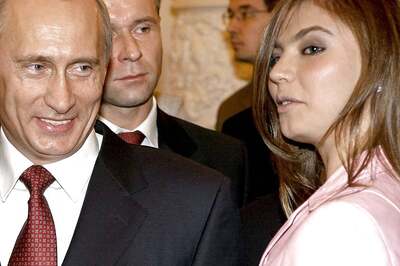
views
Washington: US President George Bush used his veto power on Wednesday for the first time since taking office 5 1/2 years ago, saying that an embryonic stem-cell research Bill "crossed a moral boundary."
The Bill, which the Senate passed on Tuesday, 63-37, would have loosened the restrictions on federal funding for stem-cell research.
House Republican leaders tried on Thursday evening to override the veto, but that vote was 235 to 193, short of the necessary two-thirds majority.
"This Bill would support the taking of innocent human life in the hope of finding medical benefits for others," Bush said on Wednesday afternoon. "It crosses a moral boundary that our decent society needs to respect. So I vetoed it."
Attending the White House event were a group of families with children who were born from "adopted" frozen embryos that had been left unused at fertility clinics.
"These boys and girls are not spare parts," he said of the children in the audience. "They remind us of what is lost when embryos are destroyed in the name of research. They remind us that we all begin our lives as a small collection of cells."
The measure, which the House of Representatives passed in May 2005, allows couples who have had embryos frozen for fertility treatments to donate them to researchers rather than let them be destroyed.
Bush said, "If this bill were to become law, American taxpayers would, for the first time in our history, be compelled to fund the deliberate destruction of human embryos, and I'm not going to allow it."
In August 2001, Bush announced that his administration would allow federal funding only for research on about 60 stem-cell lines that existed at the time. Researchers have since found that many of those lines are contaminated and unusable for research.
PAGE_BREAK
Scientists say stem cells could be a renewable source of replacement cells and tissues to treat Parkinson's and Alzheimer's diseases, spinal cord injuries, diabetes, strokes, burns and more.
The issue has split the Republican Party, with Bush siding with the Catholic Church and social conservatives against the GOP's more moderate voices.
The Senate Bill's principal sponsor, Senator Arlen Specter, R-Pennsylvania, who recently survived a brush with cancer, was joined by Majority Leader Bill Frist, R-Tennessee, a physician who argued that Bush's policy is too restrictive.
Bush signed the "fetal farming" legislation and urged Congress to fund alternative research.
"I'm disappointed that the House failed to authorize funding for this vital and ethical research," he said. "It makes no sense to say that you're in favor of finding cures for terrible diseases as quickly as possible and then block a bill that would authorize funding for promising and ethical stem-cell research."
A House GOP aide said that the leadership would bring the funding bill back to the floor at another time under a different set of rules that would require a simple majority to pass the measure.




















Comments
0 comment